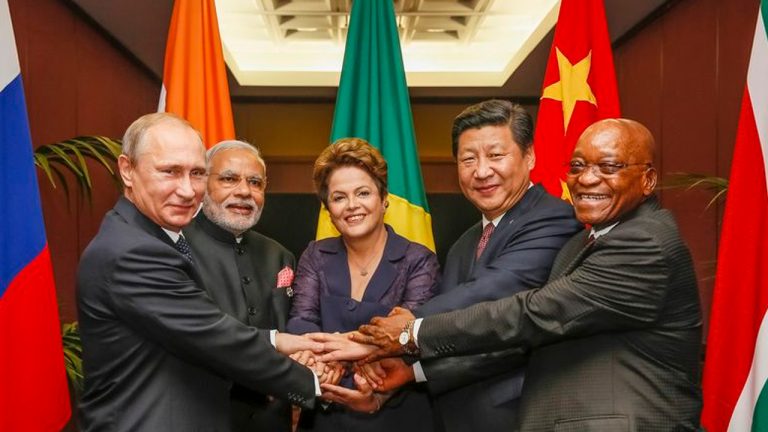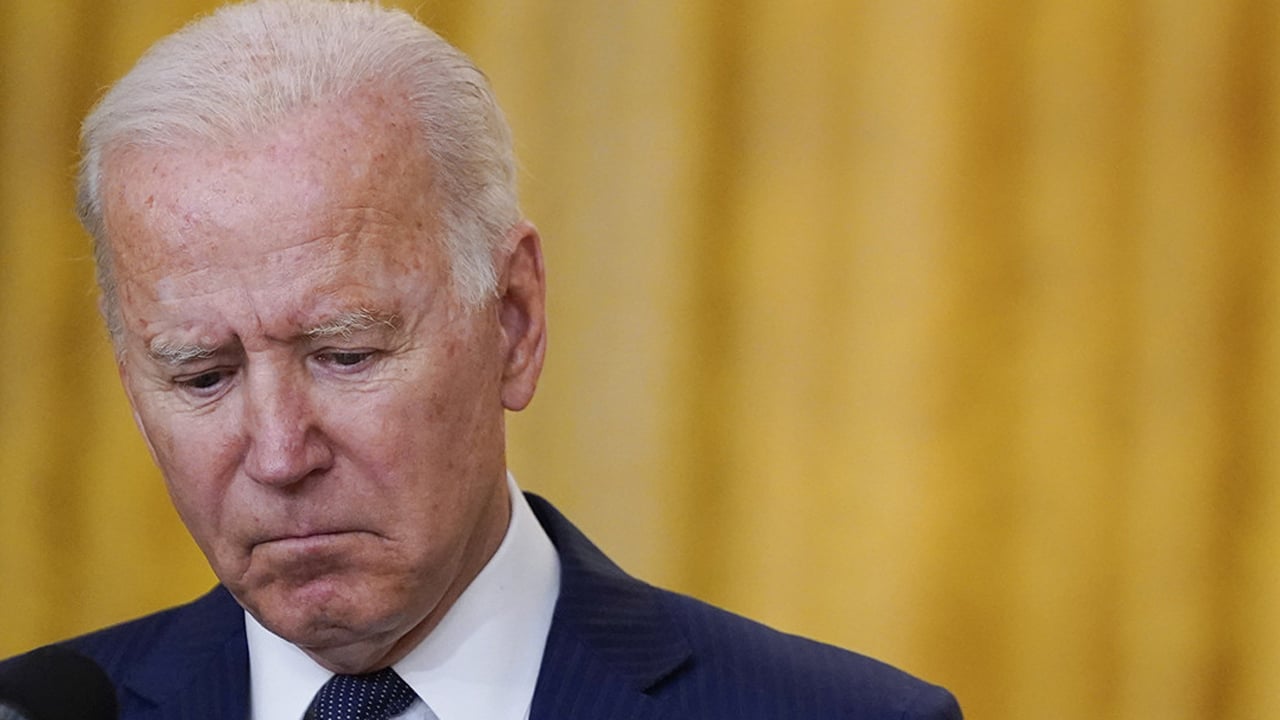 On Wednesday, Reuters reported that Western sanctions on Russia and oil trading between Moscow and India have started to erode the dollar’s decades-old dominance of international oil trade. The oil deals between India and Russia have been settled in other currencies, putting the U.S. dollar’s dominance in the oil trade under pressure. Sources Say Non-U.S. […]
On Wednesday, Reuters reported that Western sanctions on Russia and oil trading between Moscow and India have started to erode the dollar’s decades-old dominance of international oil trade. The oil deals between India and Russia have been settled in other currencies, putting the U.S. dollar’s dominance in the oil trade under pressure. Sources Say Non-U.S. […]
Former Ethereum developer Virgil Griffith has been sentenced to 63 months in prison and a $100,000 fine for violating sanctions on North Korea.
Virgil Griffith, a former Ethereum (ETH) developer has been sentenced to 63 months in prison and will pay a fine of $100,000 for attending a conference and assisting North Korea use blockchain technology in contravention of economic sanctions imposed by the United States.
On Tuesday, April 12, U.S. District Judge Kevin Castel of the Southern District of New York handed down the decision. Judge Castel stated that “what you see here is intentionality, a deliberate, willful intent to violate the sanctions' regime,” adding that the crime was made worse because Griffith had a “desire to educate people on how to evade sanctions.”
In September 2021, Griffith pleaded guilty to conspiracy to violate the International Emergency Economic Powers Act, a law banning U.S. citizens from exporting any “goods, services or technology to the DPRK (North Korea) without a license from the Department of the Treasury, Office of Foreign Assets Control (OFAC).”
In early 2019 Griffith was unsuccessful in gaining permission from US authorities to travel to North Korea, but in April, he went anyway and visited the capital of Pyongyang for the “Blockchain and Cryptocurrency Conference”.
At the conference he gave presentations dressed in a North Korean suit about how the country could use cryptocurrencies to evade sanctions and launder money. He also presented methods on how smart contracts could be used to benefit the country in nuclear weapons negotiations with the U.S.
In an attempt to lower his sentence Griffith's defense team provided evidence of factors which may have caused him to act irrationally. They presented a psychological assessment of Griffith which showed him suffering from both Obsessive Compulsive Personality Disorder (OCPD) and Narcissistic Personality Disorder (NPD).
His defense team said that diagnosis of OCPD and NPD explained the “obsession” Griffiths had for North Korea and is potentially what caused him to brush off warnings from his friends, family, and the government on unsanctioned travel to the country.
Related: The FBI’s takedown of Virgil Griffith for breaking sanctions, firsthand
At the hearing, Griffith was given the opportunity to speak stating he was remorseful of his actions, adding the sanctions on Russia due to the invasion of Ukraine had “shown their value” and that he had been “cured” of his “obsession with North Korea”.
The court did not appea convinced that Griffith was regretful, with Judge Castel saying:
“The fact of the matter is Virgil Griffih hoped to come home as a crypto hero, to be admired and praised for standing up to government sanctions, for his fearlessness and nobility.”
Griffith was arrested in November 2019 by the FBI, a few months after his return from the conference, he had several meetings with the Bureau regarding his trip prior to his arrest, even providing them with photographs of himself giving presentations at the conference.
North Korea has become increasingly sophisticated with its use of cryptocurrency both in evading sanctions and in using hacks and exploits to steal millions of dollars.
In January, a report by Chainalysis revealed that nearly $400 million was stolen by North Korean hackers in 2021 through exchange hacks and ransomware, employing a meticulous laundering system involving decentralized exchange swaps and multiple crypto tumblers.
 At the end of the trading day on Monday, Wall Street was roiled once again as major stocks plunged during the day’s trading sessions. Most news outlets indicate the Russia-Ukraine war is causing the bleak outlook and reports show strained financial conditions worldwide are currently the tightest since 2020. Meanwhile, bond markets during Monday’s trading […]
At the end of the trading day on Monday, Wall Street was roiled once again as major stocks plunged during the day’s trading sessions. Most news outlets indicate the Russia-Ukraine war is causing the bleak outlook and reports show strained financial conditions worldwide are currently the tightest since 2020. Meanwhile, bond markets during Monday’s trading […]
Blockchain Association's Jake Chervinsky believes politicians should not be worried that Russia may use crypto to get around economic sanctions because it is not feasible at the scale required.
Experts on crypto policy argue that concerns expressed by high profile politicians about Russia evading economic sanctions using cryptocurrency are “totally unfounded.”
They say the crypto market is not nearly large enough nor deep enough to support the volume that Russia needs and that the country’s digital asset infrastructure is minimal.
Former U.S. Secretary of State Hillary Clinton and the current President of the European Central Bank Christine Lagarde are among the high profile figures concerned that cryptocurrency could provide the means for Russia to bypass severe financial sanctions imposed for its invasion of Ukraine.
The country has been mostly cut off from the SWIFT cross border transaction system and businesses in America and other western countries are prohibited from doing business or transacting with Russian banks and the national wealth fund.
The Head of Policy at crypto policy promoter the Blockchain Association in the U.S. Jake Chervinsky posted a lengthy Twitter thread on Mar. 2 explaining how “Russia can’t and won’t use crypto to evade sanctions.”
1/ Russia can't & won't use crypto to evade sanctions.
— Jake Chervinsky (@jchervinsky) March 1, 2022
Concerns about crypto's use for sanctions evasion are totally unfounded. They fundamentally misunderstand:
- how sanctions work
- how crypto markets work
- how Putin is actually trying to mitigate sanctions
I'll explain
Chervinsky stated three reasons it is unlikely that Russia will use crypto to skirt U.S. sanctions. The first is that the sanctions are not limited to USD, and it is now illegal for any US business or citizen to transact at all with Russia. He said, “It doesn't matter if they use dollars, gold, sea shells, or Bitcoin.”
The second reason is that financial necessities of a nation like Russia far exceed the current capabilities of crypto markets which Chervinsky called “too small, costly, & transparent to be useful for the Russian economy.” In other words even if Russia could access enough liquidity it still couldn't hide its transactions in such a market.
Finally the country has spent years trying to “sanctions proof” itself but has failed to build any meaningful crypto infrastructure or even finalize crypto regulations. Chervinsky says that crypto simply does not appear to be part of Russia’s plans to mitigate the effects of sanctions.
“The reality is Putin's spent years trying to sanctions-proof Russia & crypto isn't part of his plan. His strategy included diversifying Russia's reserves into yuan & gold (not crypto), shifting trade to Asia (not onto blockchains), bringing manufacturing onshore, etc.”
However, the head of fraud investigations at blockchain research platform Coinfirm, Roman Bieda, told Al Jazeera on Mar. 1 that it was possible in general to use crypto to “evade sanctions and hide wealth” as has been done by North Korea, Venezuela, and Iran.
But other experts told the outlet that said Russia’s case is different because of the scale of sanctions, its sluggish rate of crypto adoption and lack of depth in markets.
Ari Redbord, Head of Legal and Government Affairs at crypto crime investigator TRM Labs said the transparency of blockchain was a natural deterrent to sanction evasion in this case.
“Russia cannot use crypto to replace the hundreds of billions of dollars that could be potentially blocked or frozen.”
Cointelegraph reported on Feb. 25 that ECB President Lagarde was eager to get the Markets in Crypto Assets (MiCA) bill passed by the European Parliament as soon as possible in order to give European authorities the means so that “crypto assets can actually be caught.” Lagarde is pushing to pass the policies urgently in order to prevent Putin from potentially being able to evade sanctions with crypto.
In an interview with Rachel Maddow on MSNBC this week Hilary Clinton urged U.S. President Joe Biden to bar Russia from crypto trading. She and Maddow discussed the national security threats that could exist in regards to cryptocurrency and Clinton said, “The Treasury Department and Europeans should look hard at how they can prevent crypto markets from giving an escape hatch to Russia.”
“I was disappointed to see some of the crypto exchanges, not all of them, but some of them are refusing to end transactions with Russia from some philosophy of Libertarianism.”
Related: European Parliament postpones crypto bill vote over proof-of-work
Democrat Senator Elizabeth Warren also took the opportunity on Mar. 1 to state that American financial regulators should scrutinize digital assets because they risk “allowing Putin and his cronies to evade economic pain.”
 The troubles in Afghanistan rage on after the U.S. government spent 20 years and trillions of dollars on a conflict that was never resolved. The U.S. government, Federal Reserve, and allied partners have seized the central bank of Afghanistan’s assets and as time passes, the country’s citizens have run out of money. Regional reports show […]
The troubles in Afghanistan rage on after the U.S. government spent 20 years and trillions of dollars on a conflict that was never resolved. The U.S. government, Federal Reserve, and allied partners have seized the central bank of Afghanistan’s assets and as time passes, the country’s citizens have run out of money. Regional reports show […] The war in Afghanistan has been an extremely long conflict since the United States invaded the country in 2001, in order to drive the Taliban from power. After a messy exit, the U.S. occupation in Afghanistan has been compared to mistakes made during the Vietnam War. Now that U.S. forces have left Kabul in great […]
The war in Afghanistan has been an extremely long conflict since the United States invaded the country in 2001, in order to drive the Taliban from power. After a messy exit, the U.S. occupation in Afghanistan has been compared to mistakes made during the Vietnam War. Now that U.S. forces have left Kabul in great […]